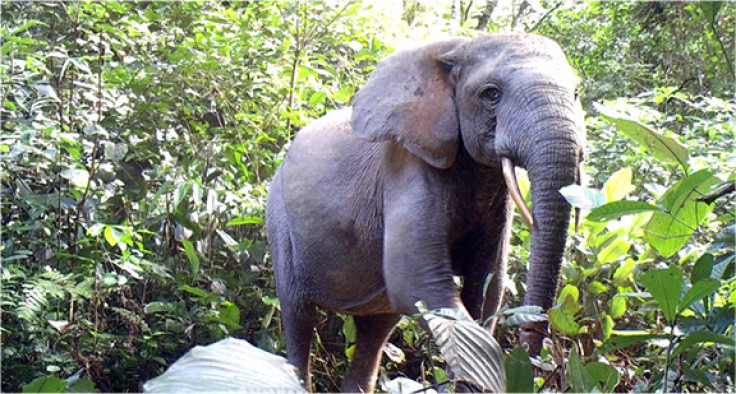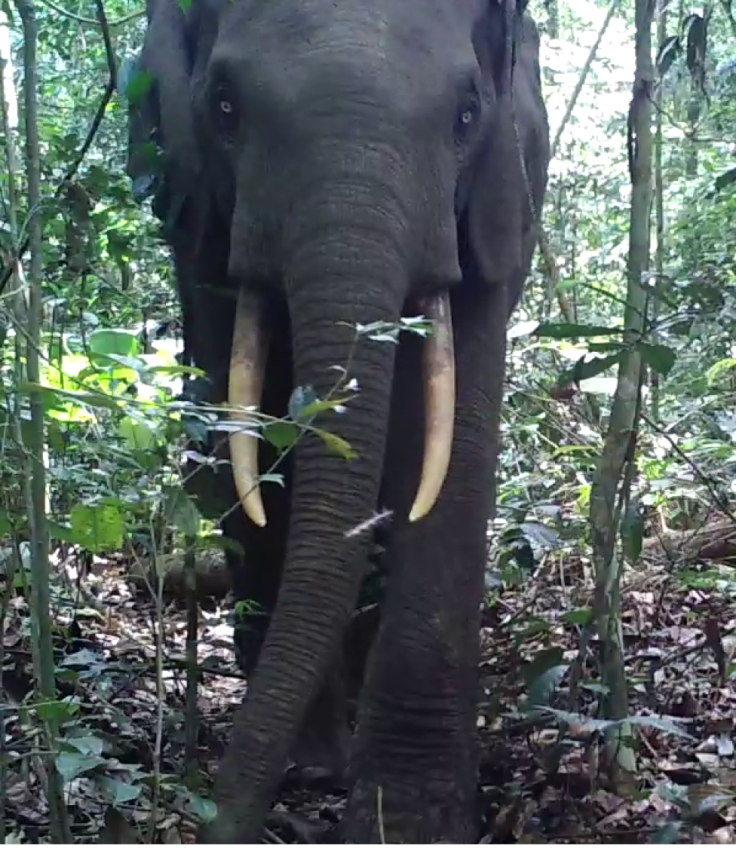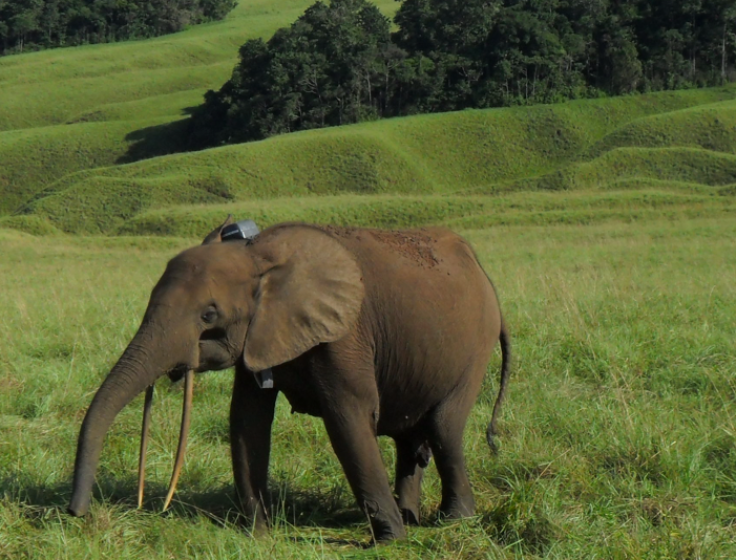Cameroon ivory poachers are emptying Gabon's key nature reserve of elephants
Forest elephant populations have crashed by 80% in one of Central Africa's most important nature reserves.
More than 25,000 elephants in the Minkébé National Park in Gabon are thought to have been killed by poachers between 2004 and 2014, according to a paper published in the journal Current Biology. The findings come as a surprise to conservationists, as the Minkébé park is considered one of the safest and most remote reserves in Gabon.
The poaching was mainly from neighbouring Cameroon to the north of Gabon, the study found. Elephant numbers in the south of the Minkébé park were slightly lower in 2014 compared with 2004, but in the north the park had been largely emptied of elephants.
Remote park thought safe
The north of the park is about 6.1km from Cameroon's national road, whereas the south of the park is about 58km from the nearest large Gabonese road.
"That's what makes it particularly alarming," study author John Poulsen of Duke University's Nicholas School of the Environment told IBTimes UK.
"The Minkébé National Park is one of the largest and most remote parks in Gabon. There was a sense the park was protected by its remoteness. What was overlooked was the national road on the Cameroon border that was fairly close to the park,"
The wave of poaching is likely to spread further to empty the rest of the park if the illegal activity is not checked, Poulsen said.

"Minkébé got the brunt of it and then it's going to move south. There is poaching in the other parks in Gabon and throughout Central Africa, but the most severe poaching is coming from the north," he said.
Officials in Gabon have been taking measures to slow the rapid decline in elephant populations since 2011, when an illegal gold mining camp of about 6,000 people was disbanded by the Gabonese military. In addition to the mine, people at the camp were allegedly trafficking prostitutes, drugs, arms and ivory.

International approach
Gabon has taken several measures to attempt to stem the poaching which include upgrading forest elephants' protection status to fully protected, creating a National Park Police force, doubling the national parks' budget and burning all confiscated ivory. However, without cooperation from Cameroon, there is unlikely to be a decline, Poulsen said.
"There need to be more international measures and bilateral communication between countries, protecting parks near borders," he said.
Heather Sohl, chief wildlife adviser at WWF, said in a statement: "This is an international problem which requires global action to reduce the demand for ivory in consumer countries, tackle corruption and increase law enforcement to control poaching and wildlife trafficking. Even here in the UK the government needs to show leadership on this issue as a transit country and stop any involvement in the global illegal ivory trade, by urgently ending the UK domestic ivory trade."
Shutting down the legal ivory trade in all countries would be the biggest step, Poulsen agreed, following China's recent announcement to shut down its ivory trade. Whether this will add demand to the illegal trade is not yet known.
"There is a potential that it would increase the illegal trade. But we have to start where we can, shutting down the legal and then start working on the illegal trade," he said. "A lot of it comes through with education on the importance of elephants, seen as iconic creatures rather than bearers of ivory."

© Copyright IBTimes 2024. All rights reserved.






